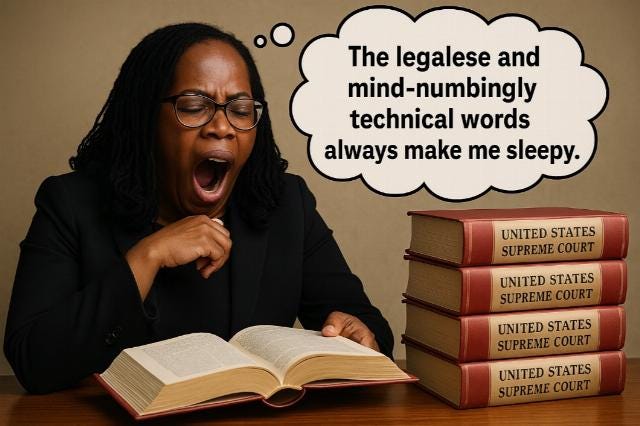Martians, Melodrama, and Make-Believe Law
A Look Inside Justice Jackson’s 22-Page Equity Tantrum
OPINION: By Walter Curt
The pundit class has been hyperventilating ever since the Supreme Court clipped the wings of so‑called “universal” injunctions, yet the same talking heads studiously avoid showing viewers what Justice Ketanji Brown Jackson actually wrote in her 22‑page dissent. Why? Because the minute ordinary Americans read her words, the DEI fai…




